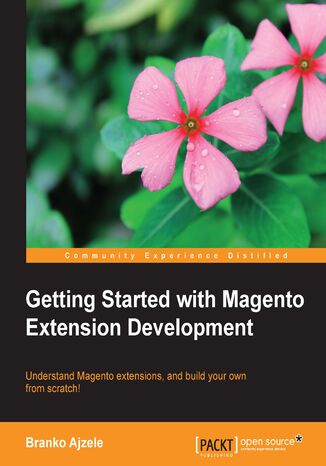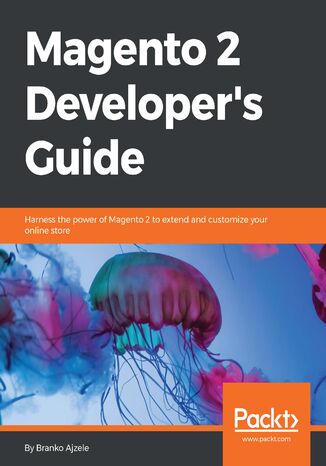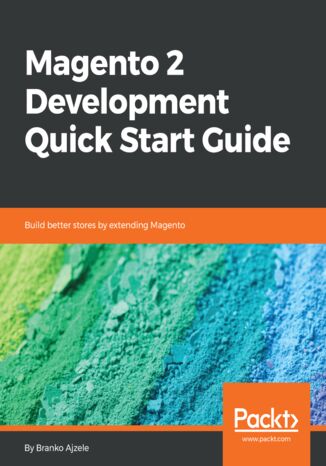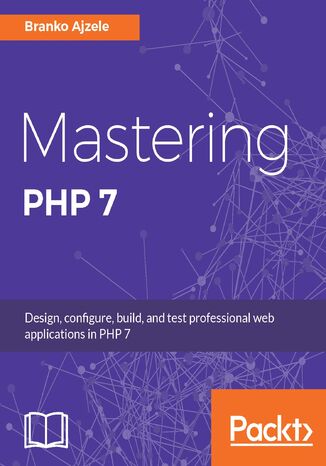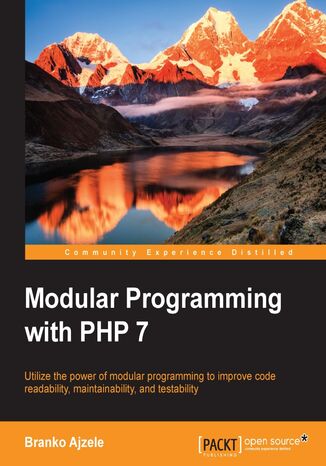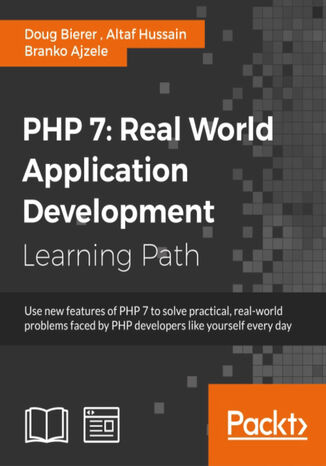Categories
Ebooks
-
Business and economy
- Bitcoin
- Businesswoman
- Coaching
- Controlling
- E-business
- Economy
- Finances
- Stocks and investments
- Personal competence
- Computer in the office
- Communication and negotiation
- Small company
- Marketing
- Motivation
- Multimedia trainings
- Real estate
- Persuasion and NLP
- Taxes
- Social policy
- Guides
- Presentations
- Leadership
- Public Relation
- Reports, analyses
- Secret
- Social Media
- Sales
- Start-up
- Your career
- Management
- Project management
- Human Resources
-
For children
-
For youth
-
Education
-
Encyclopedias, dictionaries
-
E-press
- Architektura i wnętrza
- Health and Safety
- Biznes i Ekonomia
- Home and garden
- E-business
- Ekonomia i finanse
- Esoterecism
- Finances
- Personal finance
- Business
- Photography
- Computer science
- HR & Payroll
- For women
- Computers, Excel
- Accounts
- Culture and literature
- Scientific and academic
- Environmental protection
- Opinion-forming
- Education
- Taxes
- Travelling
- Psychology
- Religion
- Agriculture
- Book and press market
- Transport and Spedition
- Healthand beauty
-
History
-
Computer science
- Office applications
- Data bases
- Bioinformatics
- IT business
- CAD/CAM
- Digital Lifestyle
- DTP
- Electronics
- Digital photography
- Computer graphics
- Games
- Hacking
- Hardware
- IT w ekonomii
- Scientific software package
- School textbooks
- Computer basics
- Programming
- Mobile programming
- Internet servers
- Computer networks
- Start-up
- Operational systems
- Artificial intelligence
- Technology for children
- Webmastering
-
Other
-
Foreign languages
-
Culture and art
-
School reading books
-
Literature
- Antology
- Ballade
- Biographies and autobiographies
- For adults
- Dramas
- Diaries, memoirs, letters
- Epic, epopee
- Essay
- Fantasy and science fiction
- Feuilletons
- Work of fiction
- Humour and satire
- Other
- Classical
- Crime fiction
- Non-fiction
- Fiction
- Mity i legendy
- Nobelists
- Novellas
- Moral
- Okultyzm i magia
- Short stories
- Memoirs
- Travelling
- Narrative poetry
- Poetry
- Politics
- Popular science
- Novel
- Historical novel
- Prose
- Adventure
- Journalism, publicism
- Reportage novels
- Romans i literatura obyczajowa
- Sensational
- Thriller, Horror
- Interviews and memoirs
-
Natural sciences
-
Social sciences
-
School textbooks
-
Popular science and academic
- Archeology
- Bibliotekoznawstwo
- Cinema studies
- Philology
- Polish philology
- Philosophy
- Finanse i bankowość
- Geography
- Economy
- Trade. World economy
- History and archeology
- History of art and architecture
- Cultural studies
- Linguistics
- Literary studies
- Logistics
- Maths
- Medicine
- Humanities
- Pedagogy
- Educational aids
- Popular science
- Other
- Psychology
- Sociology
- Theatre studies
- Theology
- Economic theories and teachings
- Transport i spedycja
- Physical education
- Zarządzanie i marketing
-
Guides
-
Game guides
-
Professional and specialist guides
-
Law
- Health and Safety
- History
- Road Code. Driving license
- Law studies
- Healthcare
- General. Compendium of knowledge
- Academic textbooks
- Other
- Construction and local law
- Civil law
- Financial law
- Economic law
- Economic and trade law
- Criminal law
- Criminal law. Criminal offenses. Criminology
- International law
- International law
- Health care law
- Educational law
- Tax law
- Labor and social security law
- Public, constitutional and administrative law
- Family and Guardianship Code
- agricultural law
- Social law, labour law
- European Union law
- Industry
- Agricultural and environmental
- Dictionaries and encyclopedia
- Public procurement
- Management
-
Tourist guides and travel
- Africa
- Albums
- Southern America
- North and Central America
- Australia, New Zealand, Oceania
- Austria
- Asia
- Balkans
- Middle East
- Bulgary
- China
- Croatia
- The Czech Republic
- Denmark
- Egipt
- Estonia
- Europe
- France
- Mountains
- Greece
- Spain
- Holand
- Iceland
- Lithuania
- Latvia
- Mapy, Plany miast, Atlasy
- Mini travel guides
- Germany
- Norway
- Active travelling
- Poland
- Portugal
- Other
- Przewodniki po hotelach i restauracjach
- Russia
- Romania
- Slovakia
- Slovenia
- Switzerland
- Sweden
- World
- Turkey
- Ukraine
- Hungary
- Great Britain
- Italy
-
Psychology
- Philosophy of life
- Kompetencje psychospołeczne
- Interpersonal communication
- Mindfulness
- General
- Persuasion and NLP
- Academic psychology
- Psychology of soul and mind
- Work psychology
- Relacje i związki
- Parenting and children psychology
- Problem solving
- Intellectual growth
- Secret
- Sexapeal
- Seduction
- Appearance and image
- Philosophy of life
-
Religion
-
Sport, fitness, diets
-
Technology and mechanics
Audiobooks
-
Business and economy
- Bitcoin
- Businesswoman
- Coaching
- Controlling
- E-business
- Economy
- Finances
- Stocks and investments
- Personal competence
- Communication and negotiation
- Small company
- Marketing
- Motivation
- Real estate
- Persuasion and NLP
- Taxes
- Social policy
- Guides
- Presentations
- Leadership
- Public Relation
- Secret
- Social Media
- Sales
- Start-up
- Your career
- Management
- Project management
- Human Resources
-
For children
-
For youth
-
Education
-
Encyclopedias, dictionaries
-
E-press
-
History
-
Computer science
-
Other
-
Foreign languages
-
Culture and art
-
School reading books
-
Literature
- Antology
- Ballade
- Biographies and autobiographies
- For adults
- Dramas
- Diaries, memoirs, letters
- Epic, epopee
- Essay
- Fantasy and science fiction
- Feuilletons
- Work of fiction
- Humour and satire
- Other
- Classical
- Crime fiction
- Non-fiction
- Fiction
- Mity i legendy
- Nobelists
- Novellas
- Moral
- Okultyzm i magia
- Short stories
- Memoirs
- Travelling
- Poetry
- Politics
- Popular science
- Novel
- Historical novel
- Prose
- Adventure
- Journalism, publicism
- Reportage novels
- Romans i literatura obyczajowa
- Sensational
- Thriller, Horror
- Interviews and memoirs
-
Natural sciences
-
Social sciences
-
Popular science and academic
-
Guides
-
Professional and specialist guides
-
Law
-
Tourist guides and travel
-
Psychology
- Philosophy of life
- Interpersonal communication
- Mindfulness
- General
- Persuasion and NLP
- Academic psychology
- Psychology of soul and mind
- Work psychology
- Relacje i związki
- Parenting and children psychology
- Problem solving
- Intellectual growth
- Secret
- Sexapeal
- Seduction
- Appearance and image
- Philosophy of life
-
Religion
-
Sport, fitness, diets
-
Technology and mechanics
Videocourses
-
Data bases
-
Big Data
-
Biznes, ekonomia i marketing
-
Cybersecurity
-
Data Science
-
DevOps
-
For children
-
Electronics
-
Graphics/Video/CAX
-
Games
-
Microsoft Office
-
Development tools
-
Programming
-
Personal growth
-
Computer networks
-
Operational systems
-
Software testing
-
Mobile devices
-
UX/UI
-
Web development
-
Management
Podcasts
Modules, are a group of php and xml files meant to extend the system with new functionality, or override core system behavior. Most of the base Magento system is built using the module system, so you can see why they are an important feature for this rich open-source e-commerce solutions. This book explores key module development techniques and teaches you to modify, understand and structure your modules making it easy for you to get a strong foundation for clean and unobtrusive Magento module development.Getting Started with Magento Extension Development is a practical, hands-on guide to building Magento modules from scratch. This book provides an in depth introduction and helps you discover features such as; blocks, controllers, models, configuration files, and other crucial elements which contribute to the Magento architecture. This book introduces the you to real-world modules and helps provide a strong foundation which you need to become a professional Magento module developer. The book further explores best practices and tips and tricks offering you the ultimate go to guide.Getting Started with Magento Extension Development focuses on three areas. First you are guided through the entire Magento structure, where each important directory or file is explored in detail. Then the essence of the module structure and development is explained through the detailed coverage of models, blocks, controllers, configuration, and other files that manifest a single module. Finally, a detailed set of instructions is given for building four real-world modules, including a payment and shipping module.
Magento is one of the most exciting, flexible, and customizable e-commerce systems. It offers you an extensive suite of powerful tools for creating and managing an online store. After years of development, Magento 2 introduces itself with a strong emphasis on modularity, Web API's, automated testing and overall new technology stack platform.The long-awaited Magento 2 release introduces a whole new e-commerce platform to develop online stores. The all new Magento 2 architecture, Web APIs, and a host of other features are equally challenging to master as much as they are exciting to use.Tshis book will ease the learning curve by offering step-by-step guidance on how to extend the core functionality of your Magento 2 store.This book is your one-stop guide to build and customize a quality e-commerce website from the latest version of one of the largest, fastest growing, and most popular e-commerce platforms—Magento 2.We start off with an introduction to the fundamental concepts of Magento to give you a foundation to work from. We then move on to configure the development and basic production environment for Magento. After this, you’ll get to grips with the major concepts and conventions that are new to the Magento 2 platform. We then delve deeper to get to the core of automated deployments, persisting data, writing data fixture scripts and applying various backend and frontend modifications. As we near the end of the book, you will learn to make API calls and write automated tests. Finally, you will be guided through building a full-blown helpdesk module from scratch.By the end of this book, you will have learned a wide range of techniques to extend and customize your Magento 2 store to fit the requirements of your business.
Magento 2 Development Quick Start Guide. Build better stores by extending Magento
Magento is an open-source, enterprise-level e-commerce platform with unlimited scope for customization. This makes it a great choice not only for vendors but for developers as well.This book guides you through Magento development, teaching you how to develop modules that extend or change its functionality, leading to more ?exible and profitable Magento stores. You start with a structural overview of the key Magento development components.You will learn where things such as plugins, events, models, controllers, layouts, and UI components ft into the development landscape. You will go through examples of using these components to extend Magento. As you progress, you will be building a diverse series of small but practical Magento modules.By the end of this book, you will not only have a solid foundation in the Magento development architecture; but you will also have practical experience in developing modules to customize and extend Magento stores.
Mastering PHP 7. Design, configure, build, and test professional web applications
PHP is a server-side scripting language that is widely used for web development. With this book, you will get a deep understanding of the advanced programming concepts in PHP and how to apply it practicallyThe book starts by unveiling the new features of PHP 7 and walks you through several important standards set by PHP Framework Interop Group (PHP-FIG). You’ll see, in detail, the working of all magic methods, and the importance of effective PHP OOP concepts, which will enable you to write effective PHP code. You will find out how to implement design patterns and resolve dependencies to make your code base more elegant and readable. You will also build web services alongside microservices architecture, interact with databases, and work around third-party packages to enrich applications. This book delves into the details of PHP performance optimization. You will learn about serverless architecture and the reactive programming paradigm that found its way in the PHP ecosystem. The book also explores the best ways of testing your code, debugging, tracing, profiling, and deploying your PHP application. By the end of the book, you will be able to create readable, reliable, and robust applications in PHP to meet modern day requirements in the software industry.
Modular Programming with PHP 7. Click here to enter text
Modular design techniques help you build readable, manageable, reusable, and more efficient codes. PHP 7, which is a popular open source scripting language, is used to build modular functions for your software. With this book, you will gain a deep insight into the modular programming paradigm and how to achieve modularity in your PHP code. We start with a brief introduction to the new features of PHP 7, some of which open a door to new concepts used in modular development. With design patterns being at the heart of all modular PHP code, you will learn about the GoF design patterns and how to apply them. You will see how to write code that is easy to maintain and extend over time with the help of the SOLID design principles. Throughout the rest of the book, you will build different working modules of a modern web shop application using the Symfony framework, which will give you a deep understanding of modular application development using PHP 7.
PHP 7: Real World Application Development. Real World Application Development
Doug Bierer, Iltaf (Altaf) Hussain Gul, Branko Ajzele
PHP is a great language for developing web applications. It is essentially a server-side scripting language. PHP 7 is the latest version, providing major backward-compatibility breaks and focusing on improved performance and speed. This course follows a learning path which is divided into three modules. Each module is a mini course in its own right, taking your basic PHP programing skills to the next level by showing you intermediate to advanced PHP techniques with a focus on PHP 7. The first module of the book is a programming cookbook that consists over 80 recipes! Each recipe is designed to solve practical, real-world problems faced by PHP developers like yourself every day. This course also covers new ways of writing PHP code made possible only in version 7. The second module of the course is designed to improve the performance and productivity of your application. You’ll be introduced to the concepts of Object-Oriented Programming (OOP) in PHP 7 and then shed some light on how to improve the performance of your PHP 7 applications and database. With all important concepts of PHP covered up you will move on to third module. In this module you will gain a deep insight into the modular programming paradigm and how to achieve modularity in your PHP code. Modular design techniques help you build readable, manageable, reusable, and more efficient codes. By the end of this module you will have a good understanding of modular application development using PHP 7.This Learning Path combines some of the best that Packt has to offer in one complete, curated package. It includes content from the following Packt products:• PHP 7 Programming Cookbook, Doug Bierer• Learning PHP 7 High Performance, Altaf Hussain• Modular Programming with PHP 7, Branko Ajzele

